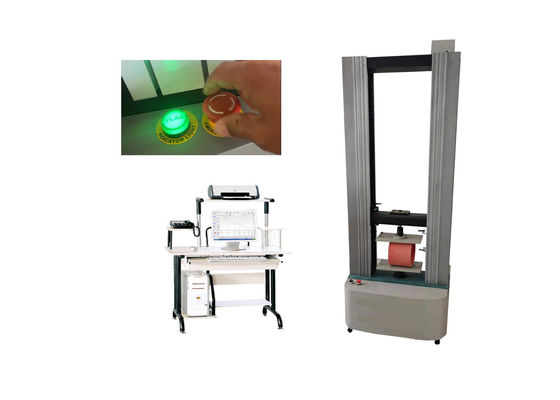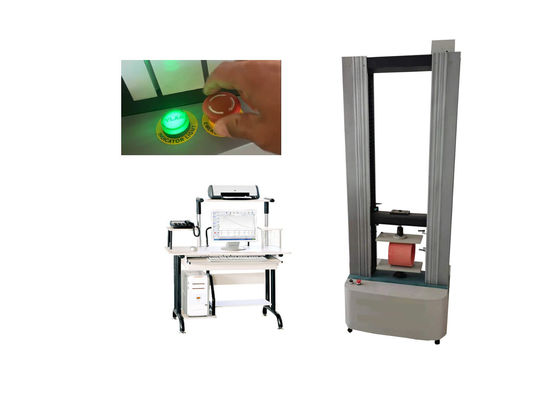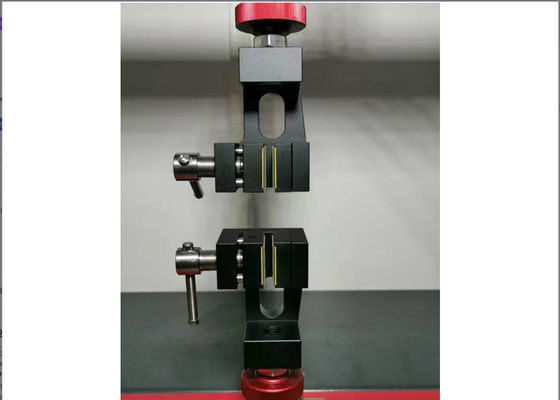The most advanced electronic universal device is specially tailored to suit your needs UTM
Application:
Universal Test Machine for Determination of Tensile Properties in Moulding and Extrusion Plastics
The Universal Test Machine, designed for determining tensile properties in moulding and extrusion plastics, is engineered to evaluate the mechanical performance of diverse materials. It assesses key mechanical properties including static load resistance, tensile strength, compressive strength, bending strength, shear strength, tear resistance, and peel strength.
This machine is specifically suited for testing plastic sheets, pipes, profiles, and films, as well as other materials such as rubber, wires and cables, steel, and fiberglass. It is developed to conduct comprehensive physical and mechanical performance evaluations tailored to these material types, ensuring accurate and reliable data for quality control, R&D, and compliance testing.
Meet Standards:
ISO 527, ISO 6259, GB/T 1040, ISO7500-1, ISO 5893,ISO 9969, ASTM D638695790
Software function:
Auto zero set. Max force, upper-yield strength, lower-yield strength, anti-tensile intensity anti-compression strength, elasticity modulus, percentage of elongation, etc. are calculated automatically.
Main technical parameters:
| Model |
XWW-10KN |
| Type |
Double column model |
| Accuracy Grade |
Class 1 (Class 0.5 optional) |
| Force-measuring Range |
1%~100%FS(0.4%~100%FS optional) |
| Deformation-measuring Range |
2%~100%FS |
| Deformation-measuring Accuracy |
±1% |
| Crossbeam Displacement Resolution |
0.001mm |
| Crossbeam Speed Range |
0.05~500mm/min |
| Displacement Speed Accuracy |
≤ ±0.5% |
| Metal Extensometer Accuracy Grade |
±0.5% |
| Test width |
380mm |
| Tensile Space |
700mm |
| Compression Space |
1000mm |
| Clamps |
Tensile, compression, bending fixture |
| PC System |
Equiped with brand computer |
| Power Supply |
AC 220V±10%, 50Hz (can be customized as customer request) |
| Size of the host |
700*400*2000mm |
| Packing size & Weight |
800*500*2100mm,about 350kg |




FAQ:
Q1: What is an Electronic Universal Testing Machine?
A1: An Electronic Universal Testing Machine is a high-precision laboratory testing instrument specifically engineered to evaluate the core mechanical properties of materials, including tensile strength, compressive strength, modulus of elasticity, and elongation. These properties are critical for validating material performance in industrial production, quality control, and research and development (R&D) scenarios.
Q2: What materials can be tested with an Electronic Universal Testing Machine?
A2: An Electronic Universal Testing Machine supports the testing of a wide and diverse spectrum of materials, encompassing metals, plastics, elastomers, and composites. This versatility enables it to adapt to material testing demands across key industries such as automotive, aerospace, electronics, packaging, and construction.
Q3: How accurate are Electronic Universal Testing Machines?
A3: Electronic Universal Testing Machines exhibit exceptional measurement accuracy, with their measurement error margin strictly controlled within ±0.5% relative to the actual value. This rigorous precision ensures test data is reliable, traceable, and fully compliant with international and national standards (e.g., ISO, ASTM, GB).
Q4: What types of tests can be performed with an Electronic Universal Testing Machine?
A4: An Electronic Universal Testing Machine is capable of performing a comprehensive suite of test modalities, including tensile testing, compression testing, flexure testing, shear testing, and tear testing. This full range of functions meets the diverse mechanical property evaluation needs of different materials and application scenarios.
Q5: What are the benefits of using an Electronic Universal Testing Machine?
A5: The Electronic Universal Testing Machine offers dual advantages of cost-effectiveness and high precision in assessing material mechanical properties. It also features an intuitive user interface for streamlined operation and delivers rapid test results—significantly enhancing efficiency throughout the material testing workflow. By ensuring reliable data output, it further supports businesses in optimizing quality control processes and reducing operational risks.

 Your message must be between 20-3,000 characters!
Your message must be between 20-3,000 characters! Please check your E-mail!
Please check your E-mail!  Your message must be between 20-3,000 characters!
Your message must be between 20-3,000 characters! Please check your E-mail!
Please check your E-mail! 





